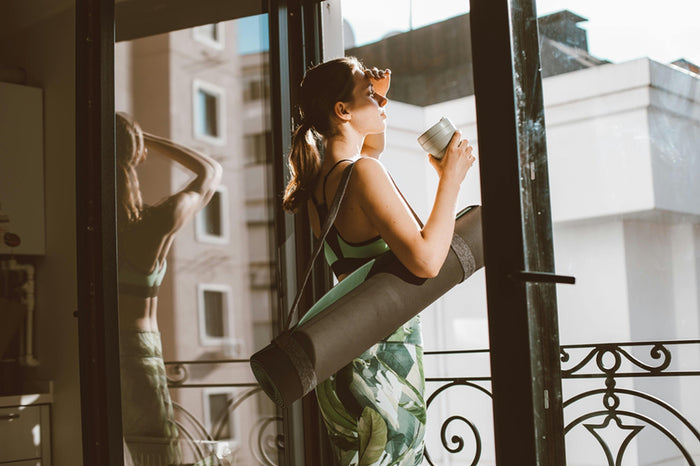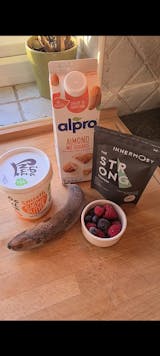We’re old hands at yoga at this point. Your cousin is a qualified yoga teacher, your yoga mat sees the light of day far more frequently than your vacuum does and perhaps you can even do a headstand. But have you ever heard of face yoga?
The logic that if you work out your body you should work out your face is a solid one. Yoga for your face feels great, is free and makes your skin look better near-instantly - what’s not to love?
Face yoga exercises consist of gentle movements and massage techniques which work the muscles in your face and stimulate the skin. Although results increase over time, your skin will look more refreshed, plump and supple than it did beforehand, just like when you feel loose and relaxed after a firm back massage.
With 43 muscles in your face, facial yoga helps to release tension, firm skin and increase blood flow. In a study from 2018, a group of women aged 40-65 did half an hour of face yoga every day for eight weeks, followed by every second day for 12 weeks. At the end of the study, a panel of dermatologists judged them to look around three years younger than they did before.

You don’t need to commit a whole half an hour out of your day to face yoga exercises, but a few minutes in the morning and evening could make the world of difference to how you look and feel.
How to do face yoga
As always when practising yoga, focusing on your breath ensures maximum results. But before we start breathing, it’s time to slather on the moisturiser.
Not only does a well-hydrated face make it easier for your fingers to slide effortlessly over your face, it keeps your facial skin supple while stretching and also helps your usual skincare products to penetrate a little deeper than usual, as they’re really worked into your skin.
We recommend applying a serum, a moisturiser, an eye cream and an oil for maximum results, before starting your warm up. Once you’ve gently massaged in your products as you usually would, stretch your head and neck forward and back to loosen the muscles, then begin tapping your face with medium pressure from the neck to the forehead, covering your entire face with little finger pats.
Forehead
This face yoga exercises helps to minimise forehead wrinkles and to remove tension. Make a fist with both hands and place them knuckles down on your forehead. Applying firm pressure, slide your fists to the side until you reach the beginning of your hairline. Repeat two to four times.
Eleven lines
The area around your eyes can hold a lot of tension, and this facial yoga helps that to dissipate. Place your first two fingers where your eyebrows begin near your nose, then spread your fingers slightly to pull the skin taut. While breathing out, slowly begin to frown. You should be able to feel your muscles working underneath your fingers.
Crow’s feet
If you’re concerned about the fine lines around your eyes, this exercise could help. Place your first two fingers at your temples, just above your eyebrows, and pull upwards firmly. You should be able to feel the stretch in your face. Without moving your forehead, squint for around five seconds, then relax. Repeat three to five times.
Laugh lines
This facial yoga move might make you feel like Edvard Munch’s The Scream, but won’t it be worth it to give your face the workout it deserves? Perhaps wait until you’re alone in your bathroom with no-one to judge you for this exercise.
Place both palms on the temples of your face and pull upwards firmly. Making an O shape with your mouth, stretch your face long, making sure to keep your upper lip pressed firmly against your teeth. Hold for five seconds, relax, then repeat again two times. Make sure not to tense your shoulder.
Neck and jawline
Anyone who’s ever woken up following a night of bad dreams and felt their jaw ache from grinding their teeth knows that the jaw can be the repository for a lot of tension. Your neck holds your head up every day, as well as being strained from constantly bending over a phone screen, so it’s time to give it some love.
Turn your chin to the right, holding it upwards at a 45 degree angle. Once you’re in position, pucker your lips as though you were about to bestow a kiss, hold for five seconds then relax. Repeat three to five times, then repeat on the opposite side.
For a more massage-focused face yoga exercise, make a peace sign with the first two fingers of your right hand, then bend your knuckles to a 45 degree angle. Bring your hand to your chin and position your fingers so that each knuckle is on the opposite side of your jaw bone on the left hand side of your face. Gently but firmly push the knuckles down your jaw until you come to your ear. You should be able to feel the tension draining away. Repeat two to three times, then do the same on the other side of your face.
To finish
Using the fingertips on both hands, gently but firmly tap all over your face from forehead to neck. This helps to relax all of your facial muscles and will make your skin glowy and refreshed.























